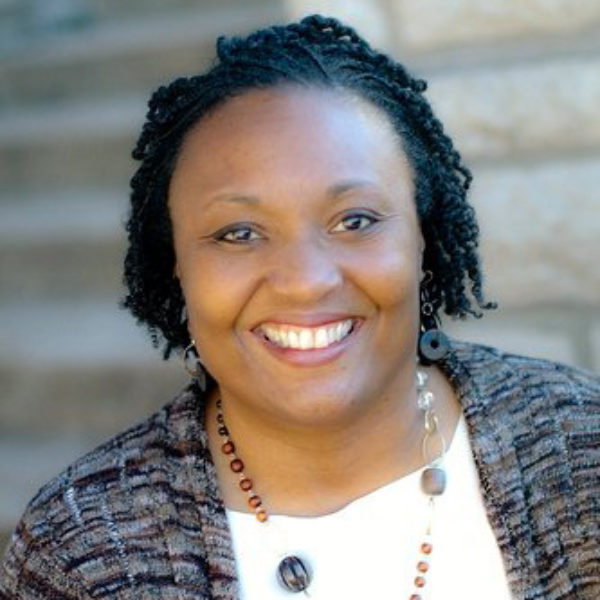Seeing Humanity in the Context of Race and Racism
This week I heard former New York City mayor Rudy Giuliani state and restate that black people perpetrate overwhelming numbers of crimes against black people. I am not discounting the fact; however, I am concerned about that fact standing in isolation.
This point isolated carries a message that contributes to the racial problems in America. It does not situate the crimes within the larger system of institutional and structural racism. It isolates this issue as if it does not exist outside of poverty and other partnering problems that are systemic and not individualized. It allows those ignorant of the larger context to believe that there is something wrong with “those” people and not our system.
Overly forcible acts of violence happening to young black men, in particular, are situated within a larger context. It’s a cyclical problem due to years of socialization about what it means to be a man, what it means to be black, what it means to be white, and what it means to be disenfranchised.
While I believe the police officer Darren Wilson used inappropriate force, even his actions should be understood within the context of an American system that perpetuates racism. He was afraid of a large, black teenager who was 18 years old.
I am raising a 14-year-old boy who is 5 foot 10 inches and 220 pounds. He will be a large, black young man for many years. He is sweet and disarming. If he was confronted by a police officer with a gun accusing him of something, I suspect he would be nervous and believe that he was going to have to fight for his life. His belief would not be unfounded. He has evidence — the circumstances of the death of Michael Brown, Trayvon Martin, and others who look like him.
I am absolutely certain he would not be involved in a crime, but I fear that even his presence walking down the street strikes an unfounded fear in people. While I know this fear is unfounded, it is not irrational for the fear to emerge.
I hear white people often throw about the word “unfounded” in discussions about race. The word is problematic. There is a reason for me to fear for my son and other young black men because I understand that we all are socialized to perceive black men as a threat. And that message is reinforced when a news story focuses on the crimes of blacks on other blacks rather than contextualizing that factual information within our larger historical problems with race, racism, poverty, etc.
We have to talk about what is happening today. We have to talk about the death of Michael Brown and his fight for his life that day. We have to talk about Darren Wilson and his perceived fight for his life — despite the fact that he was holding the gun.
I find fault when the news stories are slanted with no reference to the larger system that has resulted in overly hostile responses to black men due to the presumption that they are perceived as aggressive and less than human. These perceptions accompany young black men when they walk into any room — whether it’s a boardroom, a grocery store, or a classroom — or when they are just walking down the street.
Police officers have heard this message. It makes me wonder if the training they receive actually predisposes them to commit more hostile acts toward black men versus when in confrontations with other citizens. I am not condoning the apparent fact that Michael Brown had committed a crime. I am questioning the hostility he was met with during their exchange that day. And I am pointing out that the hostility comes from a history of complex problems that shape how race and racism play out in our society.
If we understand racism as a systemic problem, then we understand that our culture sees black men (and others) as less than human. It is not surprising then to see police officers jumping to protect their own lives without thought because of their training.
I know my son; I know other black children. I know them as human and would not jump to the conclusion that my life was threatened; in that moment, I would remind myself to see these young men as human. I believe we have to start looking at racism not from this side or that side, but as the problem and focus on deconstructing it and all of its symptoms.
Systemic racism inhabited both sides of this interaction. I have heard the interpretation of the confrontation now from Darren Wilson. I can see that his version of events engenders sympathy for the fear he reported. This all makes me wonder what threat Michael Brown felt. Was Michael Brown’s behavior erratic because he thought he might die for the crime he apparently committed since he was being confronted by a white police officer in a community with a history of racial problems? Was his behavior that of a teenager who just happened to have a bigger body accompanied by a less mature brain and in a split second thought (maybe knew) he had to fight to save his life that day? If we fight through the racial socialization in America and intentionally try to see Michael Brown as human and give him the benefit of the doubt, what might we find in his actions that day?
I wonder if black boys and men faced with a police officer and police officers faced with black men expect to have an overly hostile interaction because there is so much history, so much institutionalized racism, so much negative socialization — all reinforced when facts are not situated in context such as in that segment with Mayor Giuliani on CNN.

Share your reflection